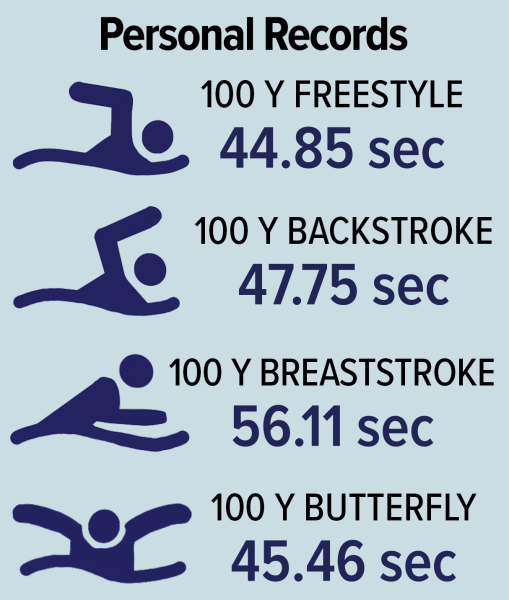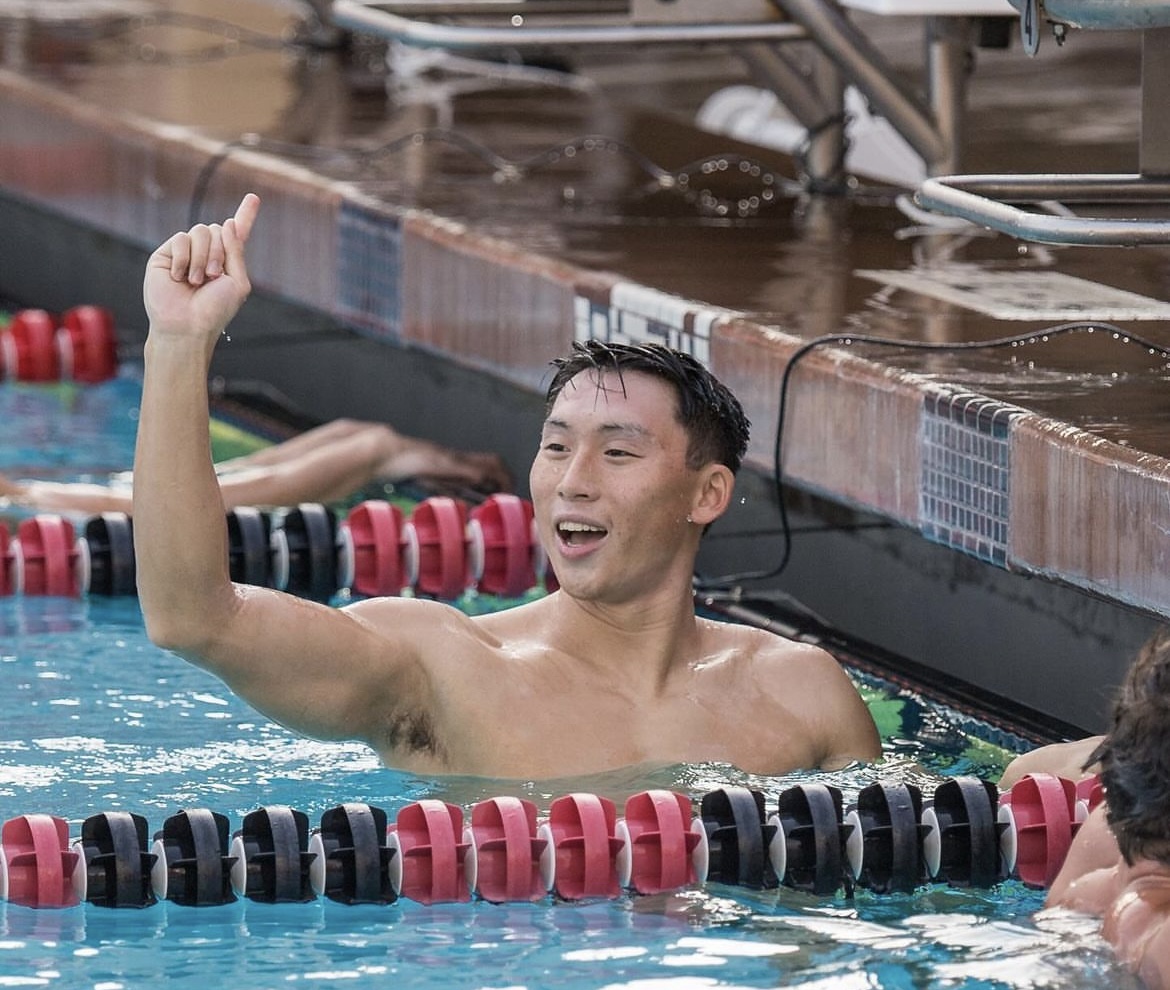Just outside the Singh Aquatic Center, Harker’s swimming records decorate the cobble walls. With a closer look, you notice the same swimmer mentioned seven times. Three-time state champion and seven-time Harker record holder Ethan Hu (‘20)’s name, engraved in black lettering, serves as a timeless marker of his impact on the boys swimming program. While the pandemic cut his season short of grabbing more titles for Harker, he continued his athletic journey at Stanford’s Division 1 Men’s Swimming Team.
“My goal for swimming was just to be the best version of myself,” Ethan said. “What I enjoyed most about swimming was to get a best time, and it was that journey of self-improvement that I really loved about swimming.”
While high school swimming was a casual way to exercise and socialize, Stanford focused on delivering results. Over time, Ethan realized the main aspects that clearly defined collegiate swimming: constantly working on improving his personal best times while also closely comparing himself to his competitors in the pool.
“There’s more pressure in the college environment, because you’re around faster people and it’s harder to get the next result,” Ethan said. “It wouldn’t be uncommon for me to see Olympians on deck or even have Olympians as my teammates. It really opened my eyes to how big the pool can be, and it just helped me get better by trying to keep up with everyone else.”
Ethan recalls participating in the Pac-12 Conference in his sophomore year, where Stanford placed second. Their most prominent rival, University of California, Berkeley, surpassed their lead, marking an emotional loss for Stanford’s team.
“As a team, that was the closest we were to camaraderie: trying to beat Cal that year,” Ethan said. “That meet was a particularly bitter pill to swallow, because we thought we had a chance to bring it home. The things that happened and the way they did really were a tough experience to go through, but it really goes to show the overall grit we had as a team to move forward.”
Stanford’s goal always lay in winning the conference, but strong opponents like Cal and Arizona State University stood as significant obstacles every year. Ethan, from dominating on the high school level to facing notable competition in the college pool, took the team’s losses as lessons for improvement. Moreover, leaning on his Stanford teammates for support helped him keep his moral strength afloat, as he transitioned from his high school four-person team to a wider circle of athletes.
“The biggest learning opportunity was managing expectations,” Ethan said. “We didn’t quite execute the way we needed to. Sometimes you find yourself up and that might not be good enough. You can’t rest on your laurels if you will.”
As a method of coping with tough losses, Ethan developed a unique view of the psychological and physical aspects of the sport. Combining the two, Ethan sees one as complementing the other: when parts of his body start to slow down throughout his race, his mind overtakes him with strategies to uphold a strong performance.

“There’s always this awareness that it’s going to hurt,” Ethan said. “Once I push off the last wall, I know my legs are going to hurt. ‘How am I going to use my technique to deal with that? Am I going to kick more? Am I going to pull more? How am I going to angle my hands?’ Things like that were pointers in my mind that while I’m in the race, I can go back to, to help me push through and get that best result.”
Spending his undergraduate years on Stanford’s swimming team, Ethan crossed paths with experiences far beyond Harker’s sphere. Although his competitive passion for the sport waned toward the end of his senior year at Stanford, he nevertheless cherishes the moments of built-up grit transforming into results.
“We spend so many hours in the pool working really, really hard. And to watch it all pay off, especially in a sport like swimming where we only get once or twice a month an opportunity to go for that best time. Those opportunities aren’t frequent, and for them to pay off, it’s certainly a special moment.”



